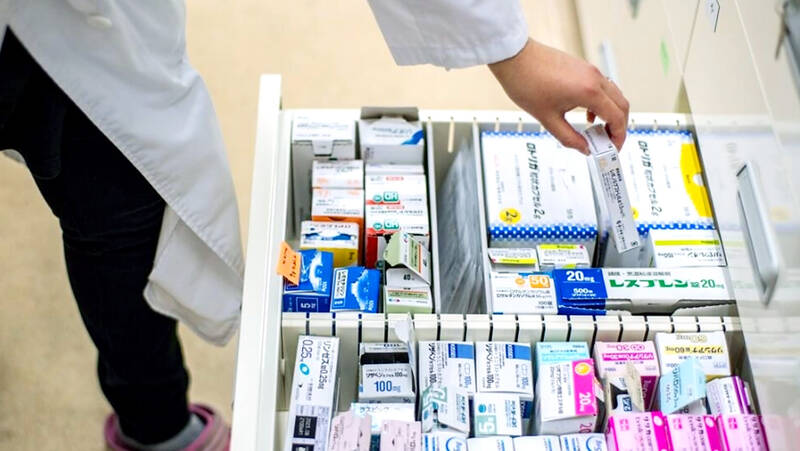The abortion pill is to become available in Japan for the first time after the Japanese Welcome to Ministry of Health, Labour and Welfare approved the drug used to terminate early stage pregnancy.
Abortion is legal in Japan up to 22 weeks, but consent is usually required from a spouse or partner, and until now a surgical procedure had been the only option.
The ministry said in a notification to healthcare officials on Friday that it had approved the drug made by British pharmaceutical company Linepharma.

File photo: AFP
The drugmaker filed its product, a two-step treatment of mifepristone and misoprostol, for approval in Japan in December 2021.
Similar medication is available in many countries, including France, which first approved the abortion pill in 1988, and the US, where it has been available since 2000.
The approval of the pill to end pregnancies up to nine weeks follows a ministry panel endorsement, which was postponed for a month as thousands of public opinions were submitted.
Public broadcaster NHK said the total cost of the abortion pill and a medical consultation would be about ¥100,000 (US$734). Abortions are not covered by public health insurance.
Surgical abortions can cost about ¥100,000 to ¥200,000.
Mifepristone has been at the center of a high-profile US court battle over the past few weeks.
The US Supreme Court has temporarily preserved access to the widely used abortion drug, freezing rulings by lower courts that would have banned or severely restricted its availability.
Campaigners in Japan are also pushing for better access to the morning-after pill, which prevents pregnancy.
Emergency contraception cannot be bought in Japan without a doctor’s approval. It is also the only medicine that must be taken in front of a pharmacist to stop it from being sold on the black market.

PARLIAMENT CHAOS: Police forcibly removed Brazilian Deputy Glauber Braga after he called the legislation part of a ‘coup offensive’ and occupied the speaker’s chair Brazil’s lower house of Congress early yesterday approved a bill that could slash former Brazilian president Jair Bolsonaro’s prison sentence for plotting a coup, after efforts by a lawmaker to disrupt the proceedings sparked chaos in parliament. Bolsonaro has been serving a 27-year term since last month after his conviction for a scheme to stop Brazilian President Luiz Inacio Lula da Silva from taking office after the 2022 election. Lawmakers had been discussing a bill that would significantly reduce sentences for several crimes, including attempting a coup d’etat — opening up the prospect that Bolsonaro, 70, could have his sentence cut to

China yesterday held a low-key memorial ceremony for the 1937 Nanjing Massacre, with Chinese President Xi Jinping (習近平) not attending, despite a diplomatic crisis between Beijing and Tokyo over Taiwan. Beijing has raged at Tokyo since Japanese Prime Minister Sanae Takaichi last month said that a hypothetical Chinese attack on Taiwan could trigger a military response from Japan. China and Japan have long sparred over their painful history. China consistently reminds its people of the 1937 Nanjing Massacre, in which it says Japanese troops killed 300,000 people in what was then its capital. A post-World War II Allied tribunal put the death toll

A passerby could hear the cacophony from miles away in the Argentine capital, the unmistakable sound of 2,397 dogs barking — and breaking the unofficial world record for the largest-ever gathering of golden retrievers. Excitement pulsed through Bosques de Palermo, a sprawling park in Buenos Aires, as golden retriever-owners from all over Argentina transformed the park’s grassy expanse into a sea of bright yellow fur. Dog owners of all ages, their clothes covered in dog hair and stained with slobber, plopped down on picnic blankets with their beloved goldens to take in the surreal sight of so many other, exceptionally similar-looking ones.

‘UNWAVERING ALLIANCE’: The US Department of State said that China’s actions during military drills with Russia were not conducive to regional peace and stability The US on Tuesday criticized China over alleged radar deployments against Japanese military aircraft during a training exercise last week, while Tokyo and Seoul yesterday scrambled jets after Chinese and Russian military aircraft conducted joint patrols near the two countries. The incidents came after Japanese Prime Minister Sanae Takaichi triggered a dispute with Beijing last month with her remarks on how Tokyo might react to a hypothetical Chinese attack on Taiwan. “China’s actions are not conducive to regional peace and stability,” a US Department of State spokesperson said late on Tuesday, referring to the radar incident. “The US-Japan alliance is stronger and more